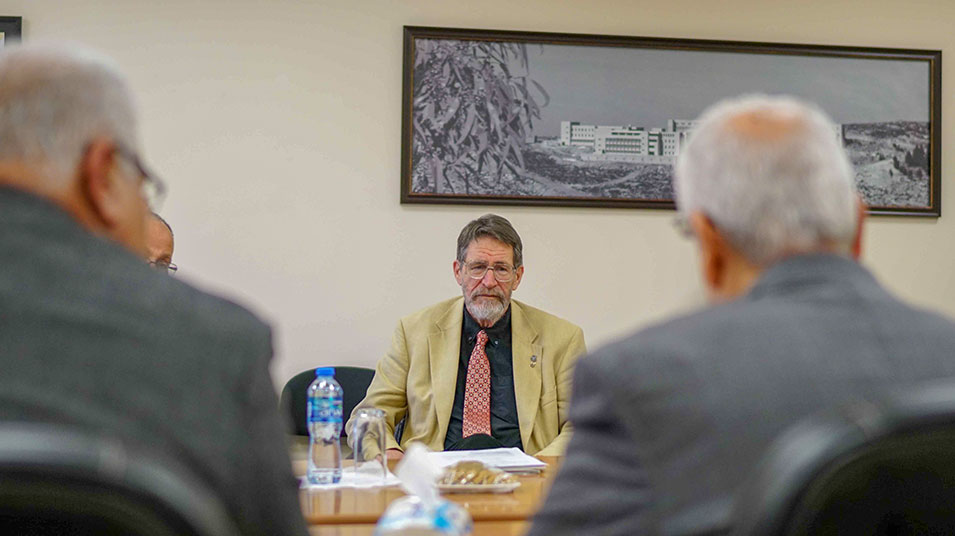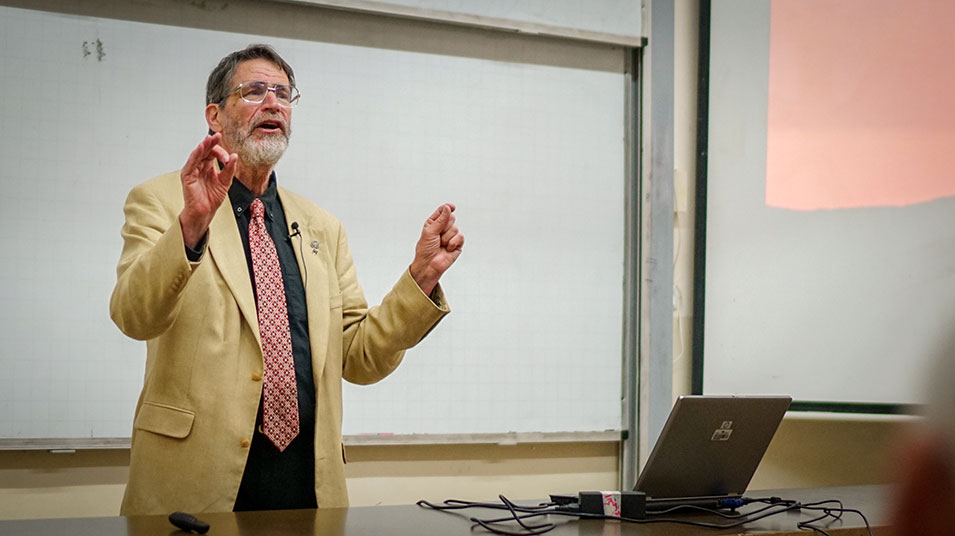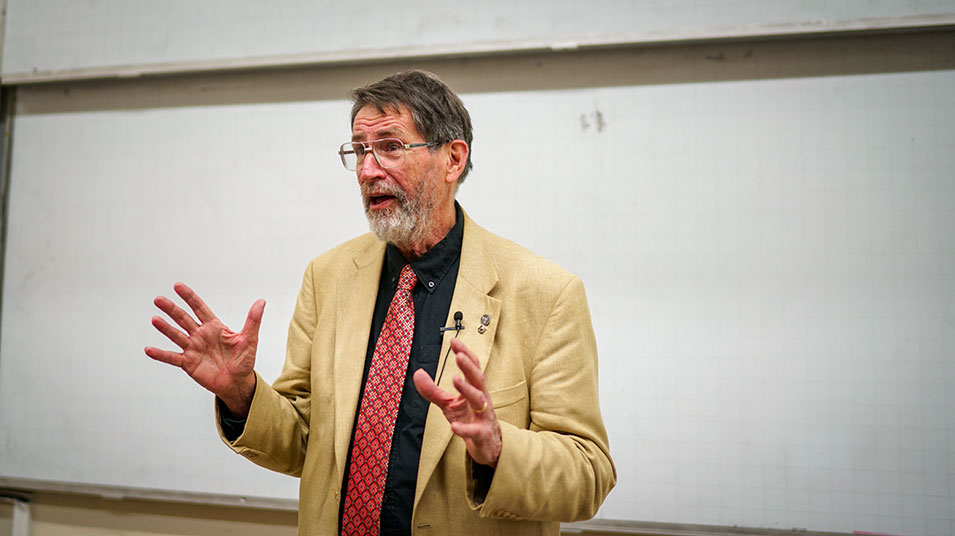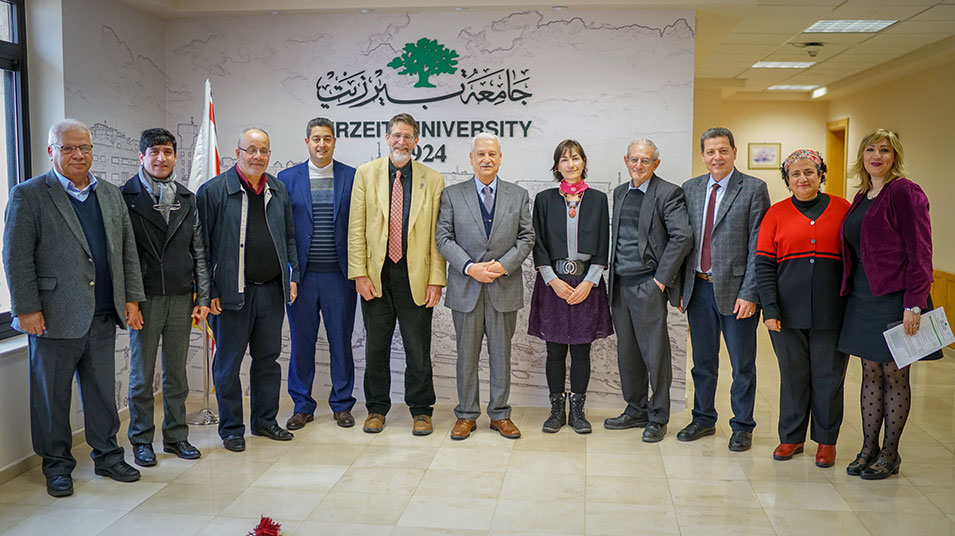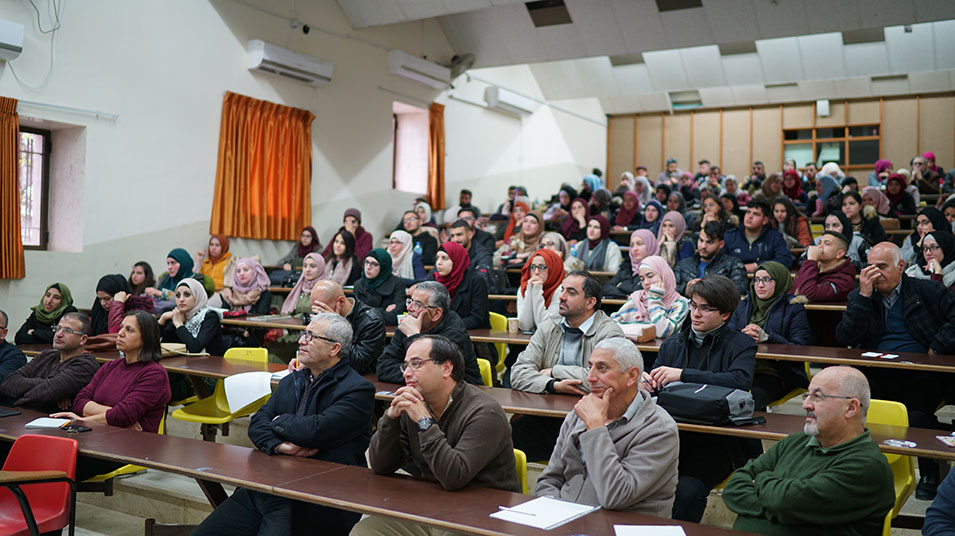Nobel Prize Winner George P. Smith conveys his support to Palestinians, addresses academic freedom, and explains his scientific breakthrough
The 2018 Nobel Prize winner in chemistry, Professor George P. Smith - a renowned scientist and longtime advocate for and supporter of Palestinian rights - gave two lectures to Birzeit University students on April 22, 2019. In the first lecture, organized by the English Language and Literature Department, Smith spoke about “Academic Freedom and Culture;” the second lecture, organized by the Department of Chemistry, was titled “Chemical Evolution with Phage Display.”
As a supporter of the Boycott Divestment and Sanctions movement, Smith in his first lecture stated - addressing policy makers and citizens of the US and Western Europe - that the principles outlined by the movement can serve as a guidebook for people of conscience in their efforts to peacefully resist the Israeli occupation. BDS, according to Smith, redefines the ongoing struggle in Palestine and aims to defeat the Zionist propaganda that claims that the Israeli conflict with Palestinians is a struggle over land rather than an occupation. “It is a struggle for equality and human rights, carried out non-violently in a situation that violently denies Palestinians these rights,” he explained.
Smith highlighted the importance of academic freedom, explaining how it is under attack in the West Bank where students and professors do not know if soldiers at checkpoints will allow them to pass and attend their school or university.
Referring to the vital contributions of academic freedom to culture worldwide, Smith highlighted that the restrictions imposed on academic freedom in Palestine isolate Palestinians from global culture, asserting that this culture requires contributions from everyone in order to develop. He pointed to his Nobel Prize and related it to an open learning and cultural environment, describing it as the product of the work of an entire community of scientists. “There would be no phage displays without the accumulated work of many scientists,” Smith emphasized.
Elaborating on the work that earned him the Nobel Prize, Smith explained how he developed a bacteriophage display technology, i.e., a method to identify genes that induce the production of particular proteins.
In his second lecture “Chemical Evolution with Phage Display,” Smith explained that phages are viruses that reproduce by infecting bacteria. He clarified that a foreign (non-phage) protein can be attached to the outer membrane of the phage by genetically fusing the foreign protein’s gene with the gene for a phage protein. The foreign protein displayed in this way retains the capabilities of the stand-alone protein. However, it also acquires critical additional capabilities: reproduction and heritable variation.
Smith showed that reproduction and heritable variations will allow displayed proteins to evolve under artificial selection in a way that mimics the evolution of living organisms under natural selection. A great variety of new proteins have since been artificially evolved in this way.
Prior to his two lectures, Smith met with Birzeit University President Dr. Abdullatif Abuhijleh and a number of the university’s administrative staff and professors, including the university’s vice president for academic affairs, Henry Jaqaman; the assistant to the president, Aziz Shawabkeh; Officer of the External Academic Relations Office Amir Khalil; Dean of Science Khalid Swaileh; Dean of the Faculty of Business and Economics Samia Botmeh; and the chairperson of the chemistry department, Hijazi Abu Ali.
President Abuhijleh told Smith about the challenges Palestinian universities - and Birzeit University in particular - are facing. “The university has been targeted by the Israeli occupation forces since it was established in the seventies. It has been closed fifteen times and in the past couple of years has been raided repeatedly.”
“However,” Abuhijleh continued, “Birzeit is working closely with the related parties to stop this disastrous policy. With all means, we are fighting for the elimination of all expressions of intolerance. We strive to bring up our future generations free from hatred and connected with the academic communities in the world.
Smith reaffirmed the importance of maintaining the university’s academic freedom, allowing it to participate in the development of global culture. He asserted that this holds special significance amidst continuous Israeli attempts to erase the Palestinian culture and to usurp the traditions of Arabs.

